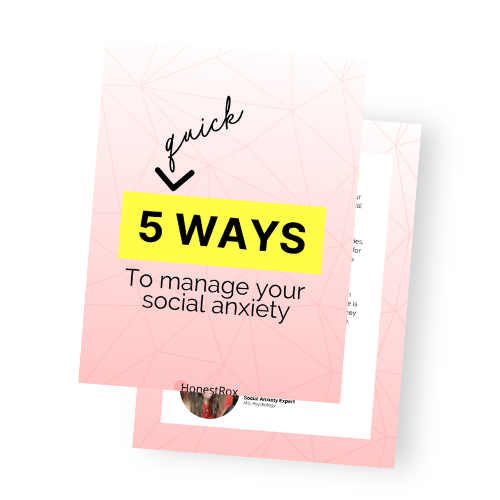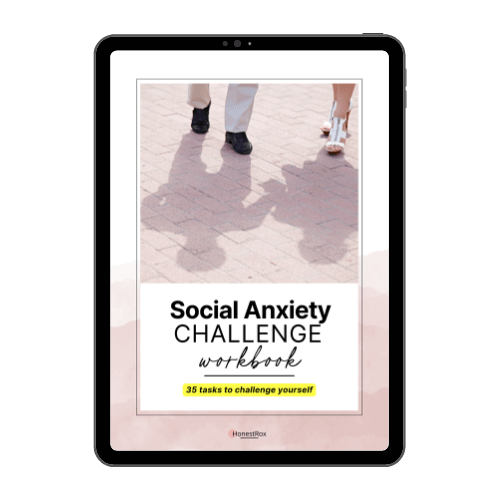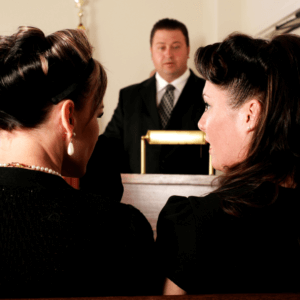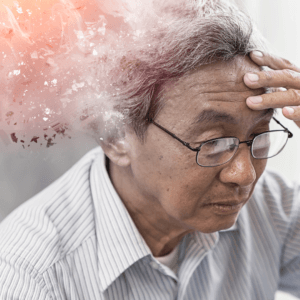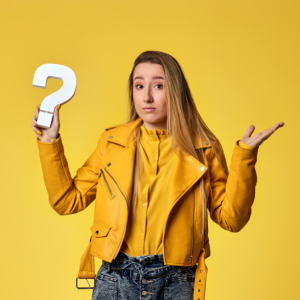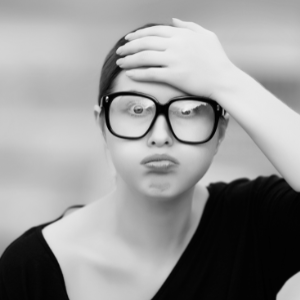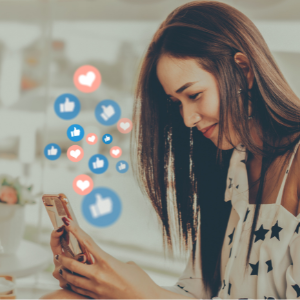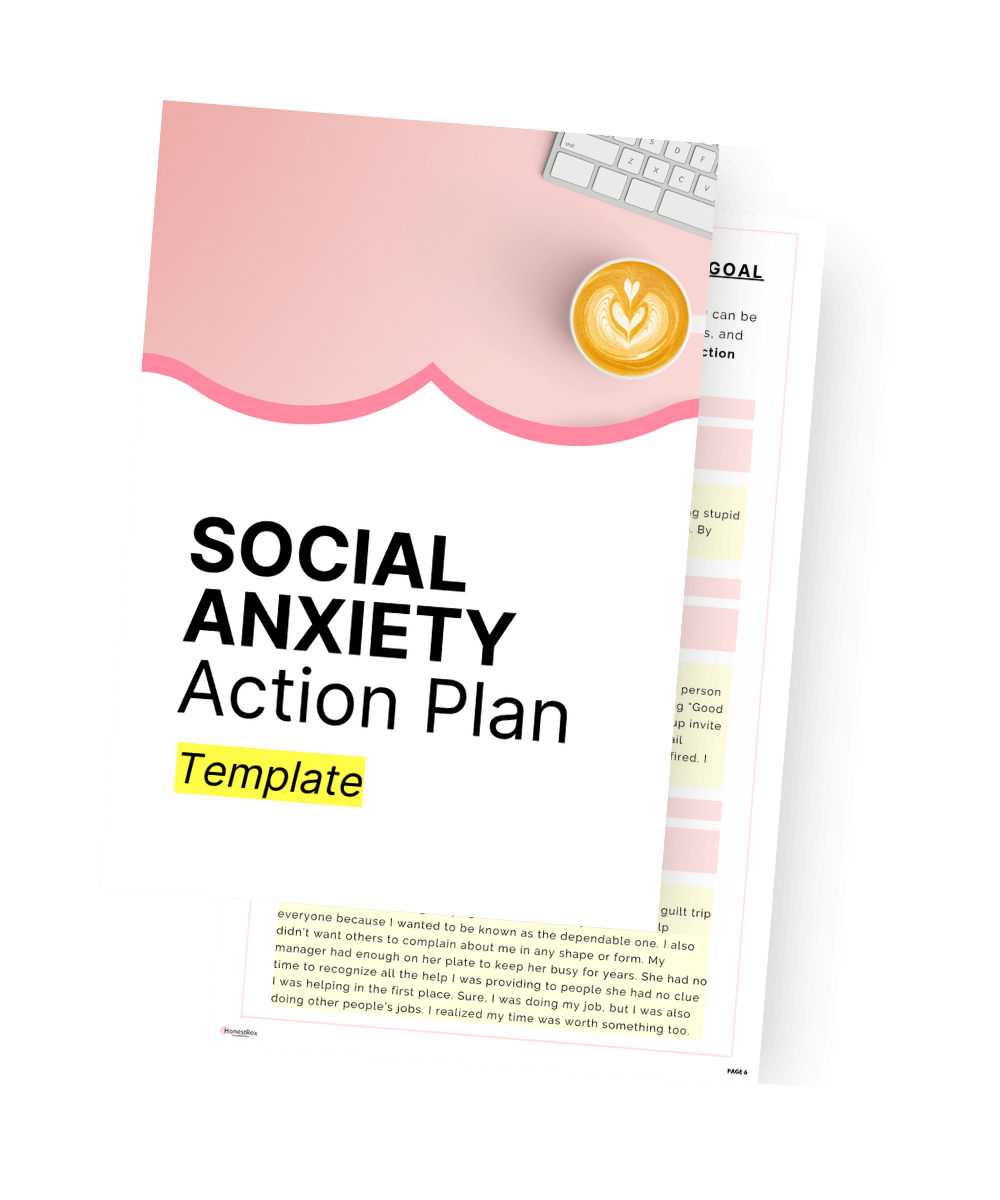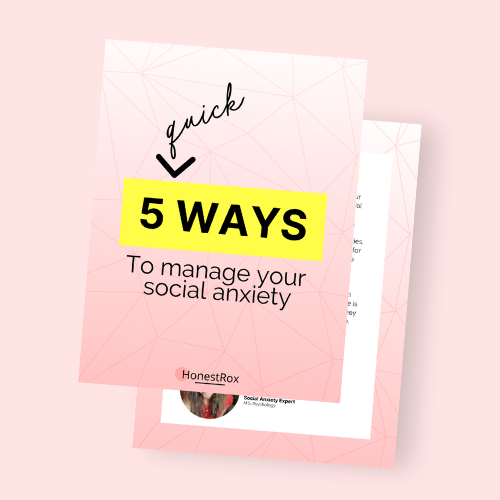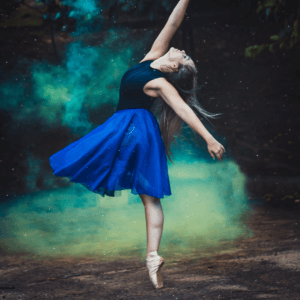
Social Anxiety
Social Anxiety Meets the Standard of Beauty
Let’s talk about how our obsession with beauty affects our social anxiety and the 3 ways to fight back.
There are many discussions about social anxiety but few touch on how the standard of beauty affects it.
There are still so many undiscovered angles, mainly because social anxiety impacts people (15 million of us!) in many different ways. I’m now more aware that social anxiety is entirely contextual and personal.
Depending on your personal history or personality type, it can manifest in various forms.
I’ve written extensively about how social anxiety has affected me and the strategies I’ve used to break free from it. Still, I never truly explored some of the nuances that can come into play subconsciously. So let’s talk about how body image affects social anxiety.
Shockingly, it’s not in a positive way.
There’s no other way to say it, but we (humanoids) place a lot of emphasis on the standard of beauty, regardless of how subjective it is.
We love staring at attractive people, which is why a whole industry (multiple ones, in fact) is dedicated to putting “beautiful” people in front of us.
Interestingly enough, we also do many strange things to keep up with young and beautiful models/celebrities/influencers.
We wax our bodies, pull our faces, slather different creams on each body part, and pay for cosmetic surgery.
All to have an impact on how we view ourselves.
And how we want others to view us.
We’ve recently turned a corner and become more enlightened about true beauty. Many companies are now (finally) making more sizes available in their stores.
They’re creating campaigns around more natural and inclusive looks. They’re also more reluctant to use photo-altering tools to promote the models artificially.
Thank goodness they realize most of us don’t look like Charlize Theron.
But it’s not just companies that are having an impact on how we think about the standard of beauty.
We, as individuals, also play a huge role. I’m also guilty of this. Whenever I post a video or a picture with a filter, I also create a “beauty-oriented culture.”
Even with all the progress made on positive body image, such as empowering women not to wear makeup (or men to have a six-pack) and discarding societal rules to look a certain way, we all still default to a standard of beauty.
We all want to look and FEEL beautiful like the movie stars. We’ll finally be confident if we are. So then, is it possible that body image affects social anxiety when we feel like we’re not meeting our expectations of being beautiful?
Let me elaborate on that.
As we grow up and become part of society, we’re bombarded by millions of messages.
Messages that tell us whether or not we’re “beautiful.” From our parents telling us (or not) to our friends suggesting it (or not), and eventually, to the opposite sex hinting at it (or not), we generally have an idea of how people perceive us.
And being human shapes how we see ourselves and what traits we choose to emphasize.
For example, someone with acne might get many stares or questions about it, so they’ll do everything to cover it up.
Someone consistently told they should model will probably find themselves in the “popular” group. Then again, someone fat-shamed their whole life might have severe eating and mental health problems.
Your perception of yourself has been shaped after years of experiences and run-ins with people. And it’s not static.
We all have ups and downs regarding how we feel about our appearance. Some days are better than others, but overall, we have a good idea about how we stack up.
Again, even if it’s subjective and fallible.
I know how delicate this topic is, and some might disagree with what I’ve just said. I want to convey how body image affects social anxiety and what culturally we deem a “good body.”
While social anxiety is about feeling negatively judged, it also affects how we see ourselves in a group setting. And the expectations we have.
Personally, once I got out of my pre-teen years, the boys were suddenly interested in me. I was deemed “beautiful.” I received many verbal and non-verbal signals from the opposite sex telling me so.
You’d think that would have boosted my confidence, but it gave me more social anxiety.
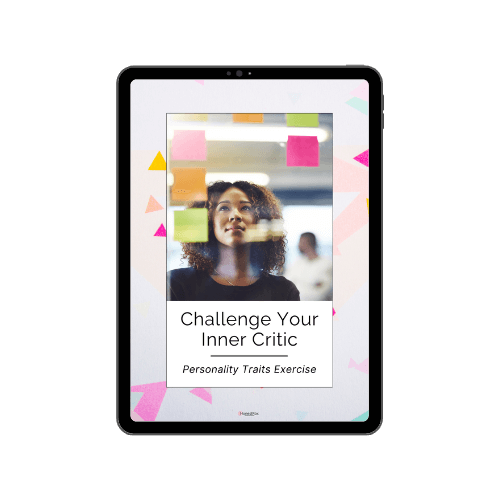
Challenge your inner critic
If your inner critic is strong and weighs you down throughout the day (because well you compare yourself to Charlize Theron) then you need to try this exercise and tip the scales in your favor.
I felt as if I was only seen through this one lens and that it was the only one that mattered. Let’s be honest; boys at that age don’t care about how many books I read.
The problem was that I carried that perception with me years later. I felt like people couldn’t see past the first layer.
That they thought I couldn’t put two words together. It became a self-fulfilling prophecy, as I found myself at a loss for words with everybody.
I didn’t feel worthy of anything else and started doubting that anyone even cared to look past it.
My social anxiety went through the roof.
And with that, imposter syndrome also made an appearance. I believed I got every job based on my looks instead of my skills. I also felt as if I was a trophy in all the relationships I found myself in. It was agonizing.
I had no confidence in myself whatsoever, and that’s probably the most peculiar part of it all because we expect people deemed “beautiful” to walk around with high self-esteem.
Unfortunately, the words we associate ourselves with end up being our reality.
I wanted people to see me as an intellectual. But the more I tried to sound like one, the more I failed.
You probably know the stereotype of the “dumb blonde.”
Overdone for decades, scarring women that have blonde hair to this day. I like to believe we’ve moved past the blonde jokes, but the trauma felt by those exposed to them at their highest peak runs deep.
That’s society screaming that you’re never going to be smart because of something so superficial and subjective.
Many examples like this have affected people, allowing social anxiety to brew slowly under the surface.
Maybe you’ve never received positive messages about your looks, or perhaps you’ve got negative ones. Those will also substantially impact how you think and see yourself.
Primarily if you were raised in an environment that didn’t fully understand the repercussions of society’s pressure on you or didn’t encourage you to love yourself no matter what.
The standard of beauty impacts us all differently, but we’re all shaped by the thoughts that come with it and the stories we create around it at the end of the day.
If you’re running into this challenge of not being able to overlook the whole concept of beauty and your expectations of yourself, I want to give you three things to think about. I wish I had known these things when I was younger to spare unnecessary pain and suffering.
I allowed too many people to have a say in how I see myself, spurring shallow confidence for many years. I’m still recovering from those days. That’s how much of an impact it had on my social anxiety.

Give your confidence a boost
Confidence is more than “just believe in yourself,” social anxiety is NOT a fact of life; yes, you can finally skip the small talk.
Grab the entire workshop bundle, which includes 3 videos, an E-book, a workbook, and a mini-class.
Here are three ways to not let the standard of beauty trigger your social anxiety:
1. Don’t let the wind sway you
While you might feel self-conscious about certain aspects of your looks because of something that happened in the past, someone looking at you will have no clue what you’re worried about.
If you find yourself on a date, for example, and social anxiety reels its head because you’re not confident about how you look, remember that you might be the most beautiful thing this person in front of you has ever seen.
You cannot base how you feel about yourself according to someone else’s standards (see point number 2).
You’re going to run into so many people with so many opinions and thoughts that you cannot let them determine how you see yourself from one day to the next.
It’s unhealthy to have so many ups and downs.
As an INFJ, I take everything to heart, so one word from someone can tremendously impact my mental health and my thoughts.
That’s why I have to work overtime to have a steady and consistent mindset regarding my concept of beauty and how I want to portray it, regardless of what someone will say tomorrow.
It’s the only way to change the narrative on how body image affects social anxiety.
2. Only you get to define what beauty means to you
My husband and I have such different standards of attractiveness that we have yet to agree on a celebrity.
We always joke that we have no clue what we see in each other because we both have awful taste. This reminds me of subjective beauty and how we all know the world through a different lens.
Beauty is indeed a matter of opinion, so don’t let others define what beauty means to YOU. Let the world see one thing as long as you know what you want to see.
The only opinion that matters is YOURS, especially regarding how you feel.
This will keep social anxiety at bay because you’ll have the confidence to back yourself up when it’s your turn to speak. It won’t matter if your skin broke out the day of a presentation or if people see the scars you carry because beauty is not related to a lack of those things.
You get to define beauty and walk around proudly with that definition.
I wish my younger self knew this. I wouldn’t have wasted so much time comparing myself to others.
3. There will always be the “Nay” and the “Yay” camp
Whatever you change, you will run into the “nay” and the “yay” camps.
The most recent example that comes to mind is Adele’s weight transformation. All it took was for her to post one Instagram picture of her weight loss, and the world went ablaze.
Everyone had an opinion on it. Good and bad.
This goes to show that no matter what you end up doing, you’re going to get it from both sides.
This is why point #2 is so crucial. If you’re confident in your strut, you won’t mind how many people are in each camp. I want you to remember this point because it also holds for everything.
The only person you need to please is yourself.
Go ahead, be Adele, and be proud of it.
This brings me to the following questions:
- How does your view of beauty affect your social anxiety?
- Do you put extra emphasis on looking a certain way?
- What happens if you miss the mark?
- Maybe you believe that you’ll be more confident once you drop x pounds, learn how to highlight your face, or have the correct tan colour.
These are fundamental questions to ask yourself.
They’ll get you to think differently about how body image affects social anxiety.
When it pops up in a situation, look inward to find the root cause of the sensation. And if it just so happens that it has something to do with perceived beauty, think about these 3 points and breathe.
Changing your expectations of beauty is a continuous work in progress.
Some days you’ll feel like shit about yourself, and some days you’ll feel on top of the world. As long as you work on elevating yourself above the ups and downs, you’ll minimize them.
Eventually, you’ll walk away feeling confident and beautiful no matter what. And with that, you’ll also chip away at your social anxiety.
I’m opening up the discussion on how body image affects social anxiety, namely our perception of what “beauty” means.
Here are 3 ways to fight back when we’re feeling social anxiety over our physique.
- Don’t let the wind sway you
- Only you get to define what beauty means to you
- There’s always the “nay” and “yay” camp
Go back up and read why it’s important to keep these top of mind whenever you feel insecure about your body image.
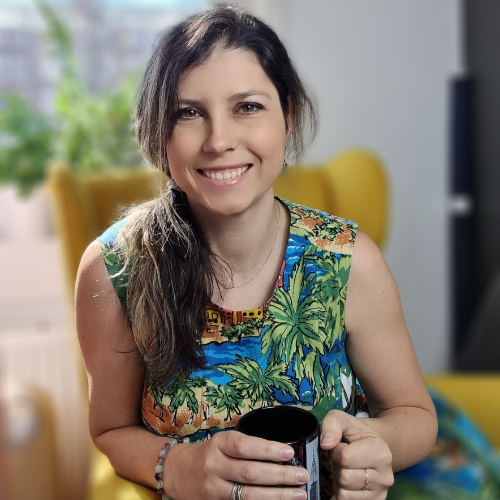
I'm Roxana

I went from being scared to ask a question out loud to hosting summits online. I love coffee, french crepes, and working from home. My mission? Help others build their social confidence to make friends, have conversations, and be comfortable around people!
Did you find value in my content? Support me by clicking the button!
Recent blog posts
Latest Episode

About the blogger
I'm Roxana Alexandru
As a social anxiety expert I share my best strategies and tips that I’ve learned on my journey to help you manage your social anxiety.
Like what you see here?
Check out the blog!
Must Reads
Grab these freebies
Free Challenge
5 tasks. 3 difficulty levels. Test your social anxiety through exposure therapy.
Grab these freebies
Free Template
Get the template that I personally used and create your own steps for your journey.
A podcast meant to help you be comfortably you, no matter the situation. My goal is to give you the confidence to go out into the world, share your worth, build meaningful relationships, and see yourself as highly capable. It all starts with being your awkward self comfortably.
Awkward together
The “Be socially confident” newsletter drops weekly to inspire, entertain, motivate, and educate you about social anxiety (who knew it could be so much fun?!). Honestly, if anything, you’ll get a kick out of my own experiences and the funny GIFs.

Call me Rox!
I’m obsessed with social anxiety. In a healthy way! After a decade of being debilitated by it, I finally have the tools I need to manage it (the journey itself is no joke). I now use my experience to help others.

